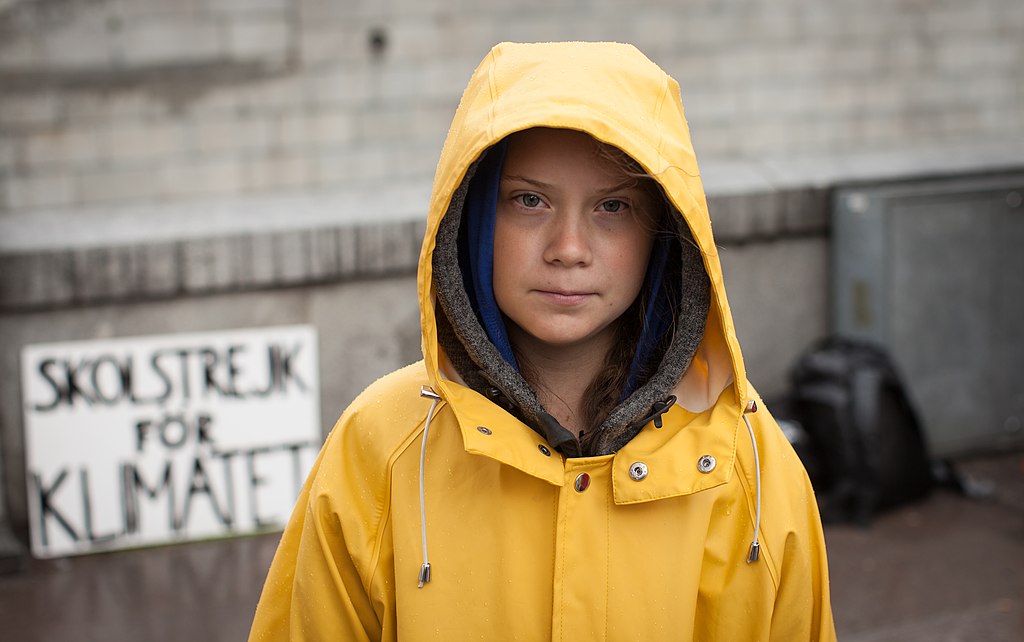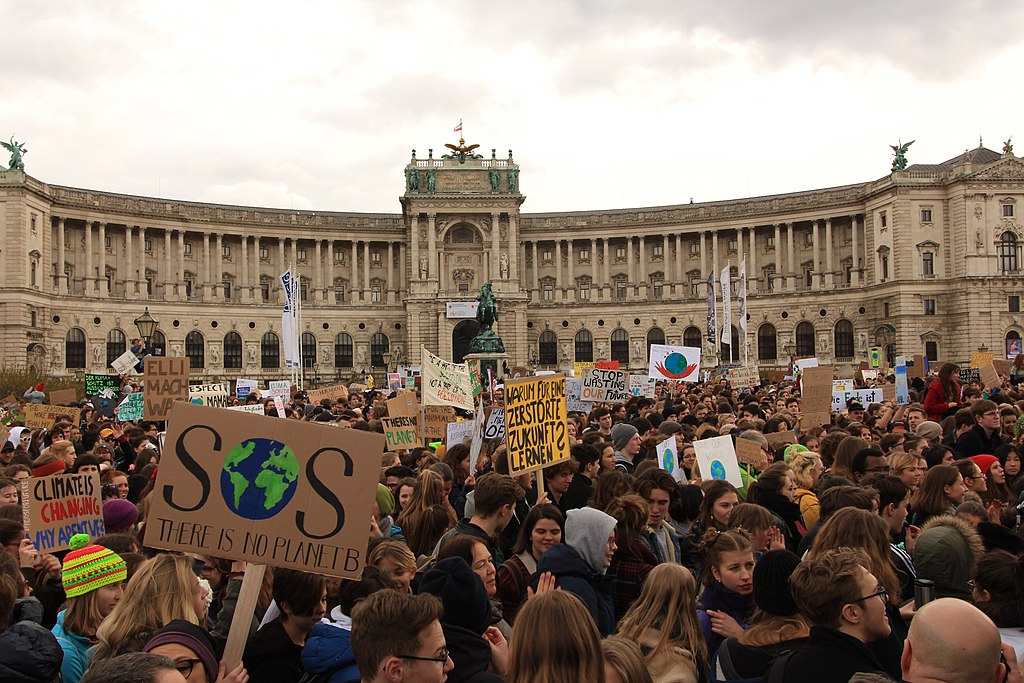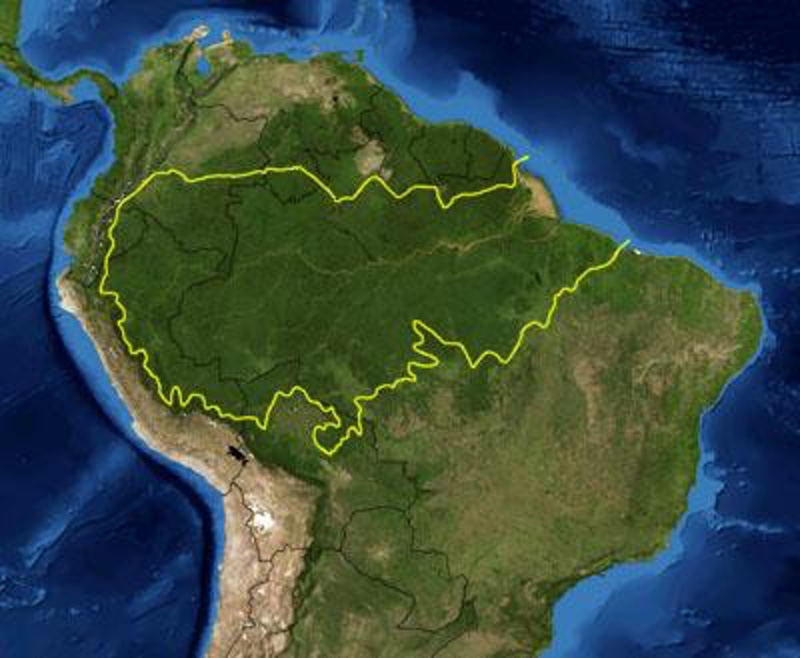Greta Thunberg, who started a worldwide movement to encourage action on the climate crisis, has been given the Gulbenkian Prize for Humanity, valued at €1 million ($1.14 million). Ms. Thunberg says she plans to donate the money.
Swedish teen Greta Thunberg began the climate strike movement in 2018 by skipping school to sit outside Parliament, protesting her government’s lack of action on global warming.

(Source: Anders Hellberg [CC BY-SA 4.0], via Wikimedia Commons.)
Climate Crisis
The climate crisis is a global emergency caused by the change in weather patterns around the world because of human activity. Global heating is a huge part of the climate crisis. The world is getting hotter, mainly because humans are burning “fossil fuels” like coal, oil, and natural gas to make energy. These fuels give off pollution which makes the climate emergency worse. These kinds of pollution are often called “greenhouse gases” or “carbon emissions”.
The world’s countries have agreed to pollute less, but so far not much has changed. The effects of global heating will make life hard, and sometimes impossible, for most living things. Scientists say humans must take strong action before 2030 to avoid the worst effects of the climate emergency.
Ms. Thunberg’s protests began to get attention. Soon people were organizing similar protests around the world. The strikes were usually held on Fridays, which the protesters called “Fridays for Future”. Most of the protesters were young people, worried because climate change will affect them much more than adults.
Large climate strikes have now been held in many countries. Two massive global climate strikes, held in March and May of 2019, were attended by millions of people in over 2,000 cities and towns around the world. Last September, 4 million people took part in another global climate strike.

(Source: Jean-Frédéric [CC0], via Wikimedia Commons.)
The prize that Ms. Thunberg won is awarded each year to a person or group that is tackling climate change in a powerful way. Ms. Thunberg was one of 135 other people who were nominated (suggested) for the prize from 46 countries around the world.
The judges chose Ms. Thunberg not only because she works hard to bring action on climate change, but because she inspires other young people to also get involved and take action. One judge called her “one of the most remarkable figures of our days.”
Ms. Thunberg says she was “extremely honored” to win the Gulbenkian prize.

(Source: Calouste Gulbenkian Foundation.)
“That is more money than I can imagine,” she said. “But all the prize money will be donated, through my foundation, to different organizations and projects who are working to help people on the front line, affected by the climate crisis and ecological crisis.”
Ms. Thunberg has decided to give the first €100,000 ($114,000) to SOS Amazonia to help slow the coronavirus outbreak in the Amazon rainforest. The coronavirus is still spreading rapidly in Brazil, where much of the Amazon is located.

(Source: Pfly [Public domain], via Wikimedia Commons.)
She’s giving another €100,000 ($114,000) of the prize money to the Stop Ecocide Foundation. They are a group which has the goal of making it illegal to destroy the environment.
This isn’t the first prize that Ms. Thunberg has been awarded. In 2019, she was Time Magazine’s Person of the Year, and she won a human rights prize from Amnesty International. She was awarded the Swedish Right Livelihood Award, and she’s even been nominated for the Nobel Peace Prize twice.

(Source: Calouste Gulbenkian Foundation.)
Ms. Thunberg isn’t stopping at donating all of her prize money. Now she’s asking people to sign a letter written to leaders from around the world, asking them to take the climate crisis more seriously so that important change can happen.
“I see the hope in democracy and in people,” said Ms. Thunberg. “If people become aware of what is happening then we can accomplish anything, we can put pressure on people in power…if we just decide we have had enough then that will change everything.”
